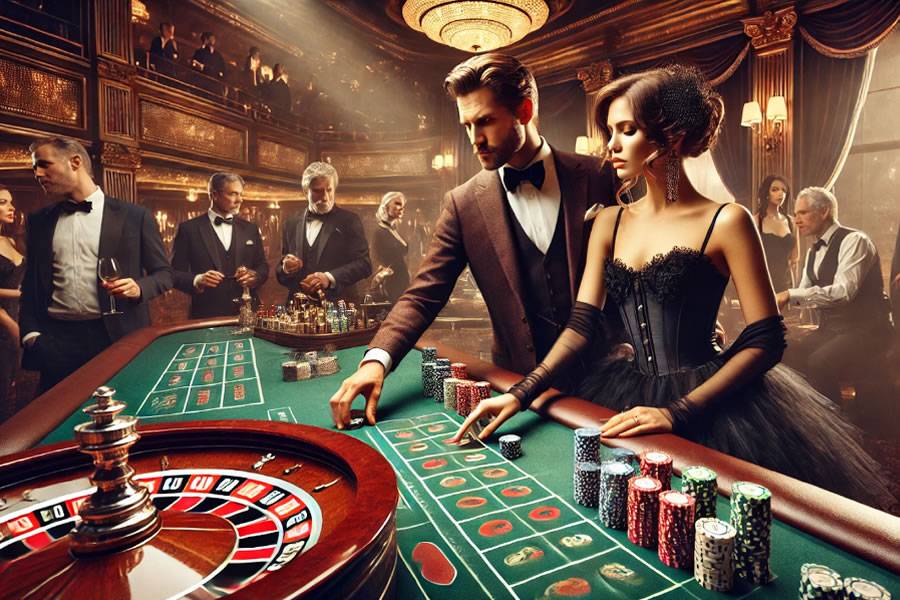The psychology of high-rollers: What drives big bets?
- 02-09-2024
- Business
- Canarian Weekly
- Photo Credit: Freepik
High-rollers are a unique breed in the gambling world. Their behaviour, motivations, and the psychology behind their big bets differ significantly from the average player. Understanding what drives these high-stakes gamblers can shed light on the broader gambling industry and its impact.
This article looks at the psychological factors that propel high-rollers to bet big.
The Thrill and Motivation Behind High-Stakes Gambling
For many high-rollers, the motivation isn't just financial gain. It's the thrill and excitement of high-stakes gambling. The adrenaline rush from placing big bets is a key driver. Arousal theory suggests individuals seek an optimal level of arousal. For high-rollers, this is often achieved through the heightened emotions of substantial wagers.
The anticipation, the risk, and the potential reward create a cocktail of emotions that these VIP players find irresistible. High-rollers often frequent the best high roller casinos in the UK, seeking both the thrill of the game and the recognition these establishments provide.
The Illusion of Control and Cognitive Biases in High-Rollers
High-rollers often fall prey to the illusion of control. This cognitive bias makes them believe they can influence game outcomes. Their experience and knowledge of gambling bolster this belief. They mistakenly equate experience with control. High-rollers develop strategies and systems, convinced they can tip the odds in their favour. However, the games remain largely based on chance.
The Illusion of Control
This illusion is especially strong among high-rollers. They often overestimate their ability to control outcomes. This belief leads them to take greater risks. Whether through superstitions, rituals, or perceived expertise, high-rollers feel they have an edge. This misplaced confidence drives them to make larger bets. They are convinced their strategies will eventually pay off.
Cognitive Biases at Play
Beyond the illusion of control, high-rollers are influenced by other cognitive biases. Confirmation bias makes them remember wins more vividly than losses. This reinforces their belief in their betting strategies. Loss aversion, meanwhile, drives them to chase losses. This leads to even higher stakes in an attempt to recover what they've lost. These biases can create a dangerous cycle. The high-roller becomes increasingly entrenched in their betting behaviour.
Status, Prestige, and VIP Treatment: Psychological Triggers
High-stakes gambling is about more than just money. It's also about the status and prestige of being a high-roller. Casinos, both land-based and online, offer VIP players exclusive perks. These include access to private gaming rooms, personalised services, and luxurious accommodations. These incentives make high-rollers feel valued and important. This fuels their desire to place big bets. The social recognition of being a high-stakes player enhances their self-image. It solidifies their identity as a successful gambler.
The Role of Emotional Highs and Lows in High-Rolling
The psychological impact of winning and losing drives high-rollers. The euphoria of winning a large sum is intoxicating. It releases dopamine, reinforcing their behaviour. However, the lows of losing are equally intense. This leads to stress and anxiety. Paradoxically, the fear of losing pushes high-rollers to keep betting. They seek to recover losses and relive the high of a big win. This emotional rollercoaster can create a cycle of continued high-stakes betting. The highs and lows become central to the gambling experience.
Conclusion: Unravelling the High-Roller Mindset
The psychology of high-rollers is complex. It is shaped by thrill-seeking, cognitive biases, and the pursuit of status. Their behaviour is driven by a desire for excitement and a belief in controlling outcomes. Social recognition as a VIP player also plays a key role.
Understanding these psychological drivers provides insights into the mentality of high-stakes gamblers. It also reveals broader implications for the gambling industry. Whether in the UK or elsewhere, high-rollers continue to play a pivotal role in the dynamics of the casino world.
By recognising these factors, online casinos can better tailor their offerings to attract and retain these valuable customers.
Other articles that may interest you...
Trending
Most Read Articles
Featured Videos
TributoFest: Michael Buble promo 14.02.2026
- 30-01-2026
TEAs 2025 Highlights
- 17-11-2025




























































